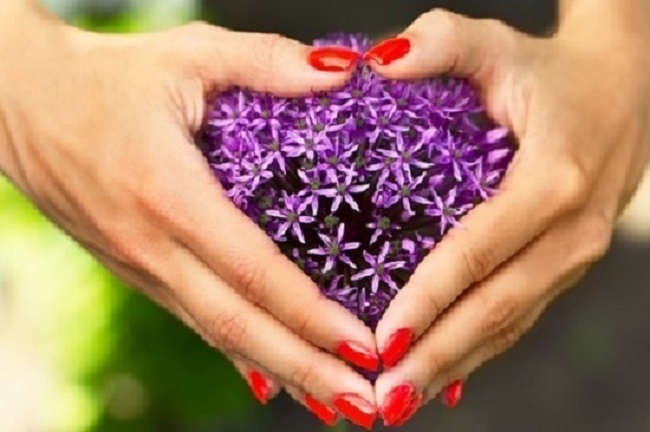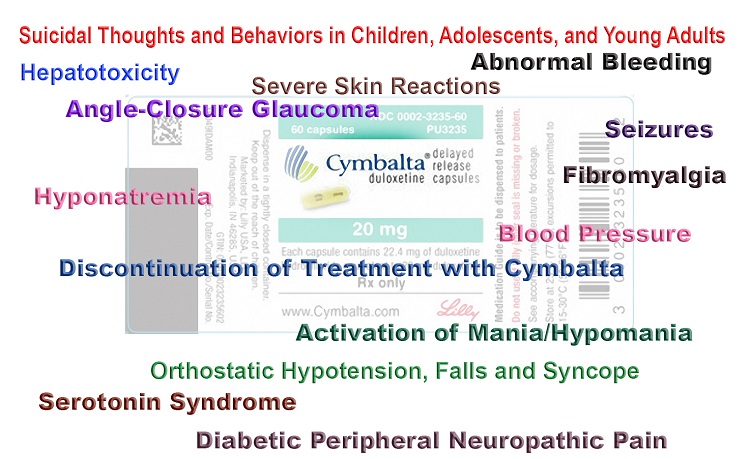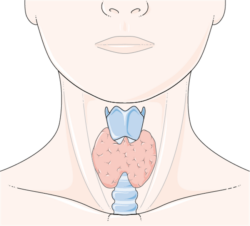Physical pain and depression go hand in hand. I’m not looking at any studies when I write this; I’m speaking from experience.
I spent three months between 4 and 9 on the pain scale. When palpated or touched anywhere below my ribs, I would involuntarily shriek and tear up. In pictures taken during that time, my skin was greyish and covered in a sheen of sweat. I was losing ten pounds a month. Specialists and primary care doctors would frequently say, “You shouldn’t be in this much pain. Your pain level is rather high,” and I would have no explanation for them. “I am in this much pain. I don’t know why. Let’s find out together.”
One explanation offered from my first gyno was that because I am severely allergic to all effective painkillers, meaning opiates and opioids, that the experience of moderate daily pain was causing sensitization. Because there was no relief, even temporarily, from pain, my body was becoming more sensitive each week, driving my pain up the scale. It’s a positive feedback cycle. Daily moderate pain started to feel like daily severe pain simply because there was no break from it. I developed an ulcer from the stress of the pain, which means I couldn’t take NSAIDS due to stomach bleeding, but they wouldn’t have done much anyway.
The gastroenterologist said that stress was making my pain worse. If constant pain makes you stressed and the pain gets worse, your stress increases too. He encouraged me to try meditation and breathing exercises, and they do help somewhat.
Pain touches the body and mind in an obviously negative way, but the worst part was depression. There was a definite pattern to the decline in my emotional health, and it had to do with hope of a solution and a return to normal life. The longer I waited for a diagnosis, the more depressed I became. The more research I did, I realized that I may spend my life in chronic pain, spending a lot of money on medical bills, with little hope of relief until menopause. No one could help with the pain, it seemed, because I couldn’t take anything for it. My mood worsened.
One month after starting the birth control, I told my gyno that I thought the pill was making me depressed. I’d been having uncontrollable and unexpected crying jags for seemingly no reason, and I’d read that depression was a possible side effect of some brands of birth control. He gently told me that this class of birth control doesn’t have depression as a possible side effect; others do, but not this one. He asked if I had a history of mental illness, and I said yes, but I’d been stable for four years. He said that I was under a lot of stress and undergoing quite a lot of pain. It would be unusual not to be depressed, and also that four years of stability is about the average, and I was due for a relapse and a medication adjustment. My partner reminded me that I’d been bedridden in the same room for months, experienced intense daily pain, had taken a very long leave from my fulfilling job, and wasn’t able to walk or exercise. Anyone would fall into a depression in my shoes.
I moved in with relatives so that my partner could focus on work. It’s very draining emotionally to take care of someone who is bedridden and in a lot of pain, not to mention lapsing into depression. I thought it would be easier for both of us.
I focused on all the things I could do when I could walk again, like go back to work, go walking in the park, go to karaoke with my friends, go out to dinner with my partner, and go to galleries and plays. I would watch foreign movies on Netflix and fantasize about eating regularly again: pastry, Thai food, German food, sushi … and later dream about food that wasn’t broth, gelatin and Metamucil.
The week of my colonoscopy, I experienced a huge emotional blow due to problems within my relationship, and my depression worsened. I stopped sleeping through the night and spent about two days in a series of panic attacks. I saw my doctor and he adjusted my medication, but I’m still trying to cope with this stress. Prolonged illness was bad enough, but I had hope that when the treatments were over, I could return to my happy home and life as usual. It’s not as easy as that now.
I spent a few weeks crying in supermarkets and drug stores, crying when I would hear familiar songs, staying up for all but one or two hours a night struggling with panic attacks, trying desperately to fake normal emotional levels and not being able to do so. I even cried onto a phlebotomist who wouldn’t stop asking personal questions (She was prying and pretty much asked for tears on her jacket). Isolation drove me to reach out on social media. I admitted that I wasn’t doing so well and needed help. As hard as that was to admit, many people came forward to offer support. A few messaged me every night, all night if the need was there, and I am eternally grateful for them. If you can manage the vulnerability of admitting you need help, you will find it.
Questions about the future regarding livelihood, health, and romance don’t lead down cheerful trains of thought. I dearly hope I don’t lose my job, or a long series of jobs, due to this disease. How does anyone reasonably manage a romantic relationship with this particular type of chronic pain? Do we demand that our partners be celibate when we are, no matter the duration? Do we acknowledge that our needs and wants are different when one person is frequently ill, and they are allowed outside sexual encounters? Or do we simply say that we’re better off living independently, even if we may struggle emotionally and financially due to this illness? I’m not actually looking for answers to these questions. Instead, I’m considering adopting a shelter dog.
Daily pain changed my personality, and I can recognize that. I wasn’t exactly chipper to begin with (I’ve been compared to Daria and Aubrey Plaza), and now I’m frequently withdrawn when the pain hits. Honestly, I’m not as much fun as I was before. Intense daily pain for months on end made me nearly suicidal, and while that’s a common reaction, it’s not easy to live with. It may be unreasonable to ask anyone to live with me at all.
Depression sticks around despite changes to medication and a strong commitment to getting better physically and emotionally. Every morning I wake up and plan activities that my normal self would enjoy. I look in the mirror and practice smiling. This is what a genuine smile looks like, do that when you see people. I plan social engagements, then wonder later if I smiled or laughed enough to convey that I’m having fun. Doing anything other than reading is exhausting. Spending time around people is exhausting. Answering any questions about my health or relationship is exhausting. Pain is exhausting. I am frequently in pain; I am exhausted. My therapist has asked me to seek out small gratitudes and moments of joy in each day, to actually practice being content. Through the mental static of anhedonia, I recognize that happiness is a choice, and a valid one.
It’s difficult to meditate on happiness when I am in so much physical pain. No one I’ve talked to or read about has said, “Why yes, my pain is greatly reduced and my life is nearly normal. I can manage my symptoms, and my treatments are affordable. My doctors take my pain seriously and find solutions in a timely manner. I can work long hours, exercise vigorously, and have great sex. The future looks good, even with this disease. There’s hope in there somewhere.”
What I seem to be looking at is decades of chronic pain, surgeries that may or may not help and will drive me deeper in debt, medication that is risky and also may not help, little or no sex life, and bowel disease that may worsen drastically as I age due to co-morbidity. Clinical depression is understandable considering the experiences of the last six months. Suicide really does look like an option some days. I know I can’t be the only one to think so.
Every person I know who struggles with severe chronic pain, no matter the underlying illness, has admitted to considering suicide. It’s not that life isn’t worth living any more or loved ones don’t matter, it’s that life has become a seemingly endless tunnel of pain. One more hour seems like too much, much less one more year or decade. Let it be known that suicide is not a sound idea and causes more suffering than it ends. If you are planning suicide, please call a hotline or arrange a ride to the nearest ER. However, it’s understandable, even normal, to think about suicide when living with painful, prolonged illness.
I realize that I won’t feel this way forever as long as I engage in healthy and productive activities and go on living life. I keep my appointments, take medication, exercise as much as I can and engage in social activities. Mostly, I act as if life is going to get better, even though my mind doesn’t seem to agree with me right now. I’m hoping that sharing this less-than-sunny account will help other people who live with pain and depression feel less alone.











Mona and Angela,
Thank you so much for responding! I was concerned to admit how depressed I was becoming in this forum, since I know people with degenerative diseases who have coped for years with seemingly upbeat attitudes. I realize now that everyone with chronic pain has their own struggles that they may deal with privately or publicly.
Every day is different, and I do attend therapy, but there’s no real way to know how things are going to change over time. Thank you both so much for sharing your stories and offering support. I’m sorry you’ve had to experience this pain. You’re both right, there is a great deal of hope.
Hi Rosalie : )
Your story reminds me of mine. I also developed chronic pain, about 3 to 7 days of less pain, the rest was severe. Like you I could not walk, sit, stand for long times.I was bedridden. I also had trouble eating. My stomach would be bloated like I was 6 months pregnant and it was very painful to digest food. Had the fever, the nausea, the cold sweating and extreme fatigue.
I was in that state for over 6 months increasingly getting worse, and yes I was depressed, at times despair and experiencing wild mood swings due to Endometriosis.
I also went on bcp hormonal treatment, and for the first couple months it did not work well, and I did get side effects like nausea, but after around 3+ months it began working and the pain was less severe, and eventually I began to feel more normal, so there is hope.
I still got the severe pain attacks several times, but they lasted for a shorter time. I expected the hormonal treatment to affect my emotions, and they did, for some months, then that normalized too.
In the middle of being fully symptomatic, I too looked at all the horror stories feeling hopeless about the future, but there is hope.
I know others with severe Endometriosis, who had many surgeries, who are today living very well, and very normal. I heard from those who say that now Endometriosis does not control them, they control Endometriosis. But it can take a battle to get there.
If you can find NSAIDs in gel form, on tube, which you can rub on your stomach to avoid taking pain medication in pill form, that can maybe help you. I did that.
I can only say for me, I also cut out gluten from my diet, like many other women with Endometriosis have. It may not help all women, but it helps many, and it did help me.
I hope you find the methods and ways which will help you too, and with time there is hope.
Hey Rosalie,
I am totally feeling where you are coming from you have no idea. I have been sick pretty much my whole life and no one knew why. Diagnosed with Endo 14 yrs after the onset of symptoms and still suffer from various Chronic pain issues that have nothing to do with Endo.
I have thought of suicide often so I know what you are feeling and what you are thinking about because chronic illness robs us of everything and I mean everything.
I am so sorry that you are going through this and the thoughts that you are having right now but please reach out to fellow spoonies on twitter that suffer from various chronic pain diseases some not diagnosed and some diagnosed but invisible diseases as well.
I am not sure if you are on there but my username is EndEndoForever and I know a lot of women that have helped me get through days like the ones you are going through when we feel we have not an ounce left of anything to give but these women are so supportive and you need that right now.
I have no support at home nor have I have I ever my entire life when it comes to my chronic illnesses and since Nov of last year I feel like I have met thousands of women suffering like me who have been there for me through good times and bad. Please reach out.
I can be contacted at any time and I am here to listen.
You have a lot to offer. You are an amazing beautiful women and your writing captivates me. Right now things are really crappy and if its going to be crappy its so much better when you have support to help you through those crappy days.
I am here for you any time.